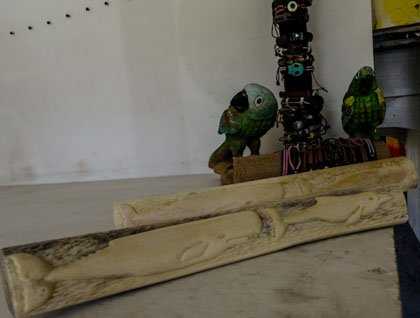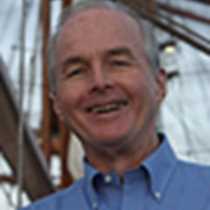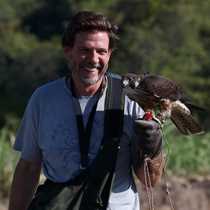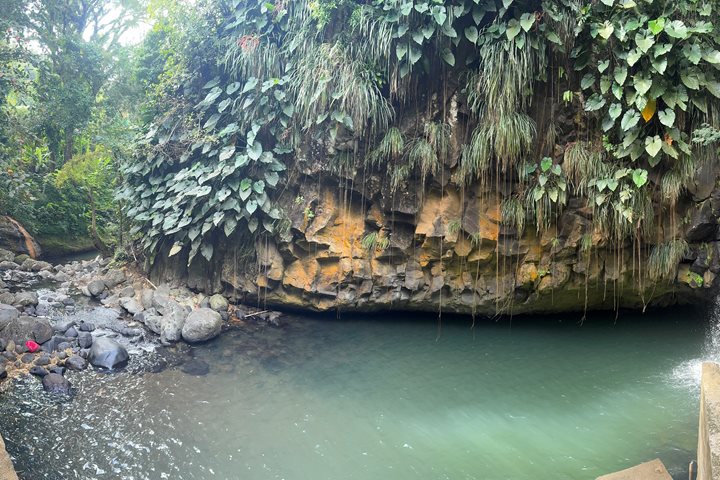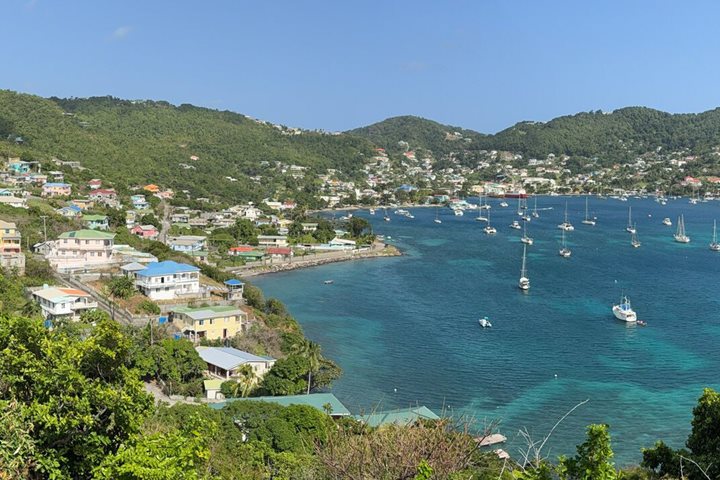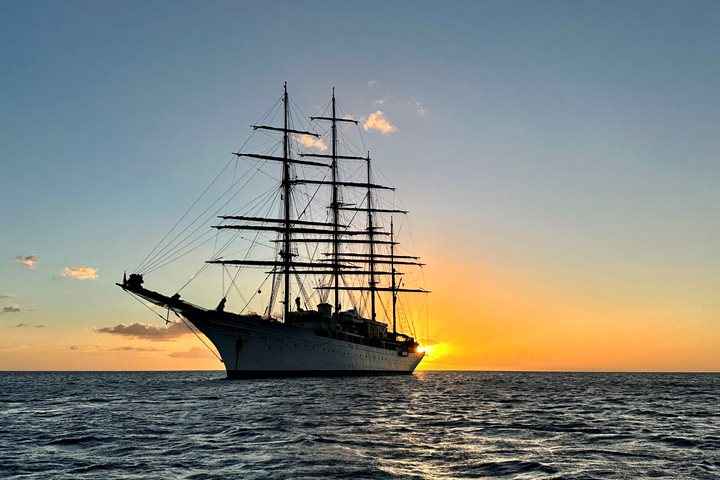We made anchorage just off Princess Margaret Bay Becquia at 7:30 this morning. The sky and the sea were cerulean blue and the chop of the surf against the shore sent surf scudding into the breeze. I looked at the village and admired the way it raised gently up the steep slope of the hill towards the very top of Point Pleasant Hill. Breakfast over; we boarded tenders for the sleepy hamlet of Port Elizabeth. Once ashore we got into the open aired pickup trucks for our tour of the island of Bequia.
The island’s name is pronounced Bek-Way and is itself an aboriginal Indian name, meaning “the island under the cloud.” The name reminds us that at one time in the not too distant past there was a thriving native population living on Becquia and on all the Antilles.
Our first stop as we left Port Elizabeth was Fort Hamilton, a small battery of five cannons sufficiently high above Princess Margaret Bay to protect the town. The battery is named after the first Secretary of the Treasury Alexander Hamilton, who himself was born on the island of Nevis.
We boarded our tiny trucks and crossed the spine of the island to the west coast on our way to the Old Hegg Turtle Sanctuary. There we met the owner Orton “Brother” King. Brother King is a former turtle fisherman who swore off killing turtles in 1995 when he began to notice their decline. He has dedicated the last 18 years of his life to saving and reintroducing Hawksbill Turtles back into the wild and thus far has returned almost 975 to the sea. Normally the rate of success for the turtle in the wild is approximately 3% but Brother Orton believes his rate to be nearer 15%. Brother King gave us an overview of his work. One of the things, which he is keen to continue, is his outreach to the schools and the young people. Whenever he is planning to release turtles back into the sea he notifies the local schools and the children are invited to watch. This allows him to talk about the importance of protecting their population. I wish him well as it is still a struggle since the open hunting season in these waters is seven months long! Given that a Hawksbill turtle does not reach sexual maturity for 25 years the odds against their thriving is formidable. I wish him well and pray he succeeds.
We made our way back to Port Elizabeth, some of us hopped out at this point while others went to the viewing overlook a top Point Pleasant. There we were given a mini introduction to the whaling industry on Becquia. They are permitted to take four humpback whales per year and they did take one a week ago. The humpback is not an endangered species and they have been given this permission as it recognizes their tradition of over two centuries.
The hamlet of Port Elizabeth has long been famous as a yachting harbor and one can see this tradition everywhere from the chart shops to the miniature boat building stores. I always make a point in my visit to see the Rastafarians who run a small open-air market where they sell fruits and vegetables. There is a rather nice small book shop in Port Elizabeth which along with books sells marine charts, scrimshaw made on the island, and one of my favorite Becquia T-shirts featuring a Lesser Antillean Bullfinch beneath which is the line “Bequia Sweet Sweet.” Indeed it is a very sweet place. There is a very old Scott’s colony that has been on Becquia for more than 200 years, descended from indentured servants. One of those early settlers who I have known for years “Pikey” told me that his grandparents worked in the old Firefly Sugar plantation before it closed in 1940. Sugar was last processed here 70 years ago. Today the Becquians depend on the sea and tourism to service. It is not an inexpensive place to live, gasoline is 15 EC dollars (=$7.50) per gallon and bananas about 50 cents per pound). Almost everything has to be brought into Becquia, even water, as there are no rivers on the island and few springs. Rain is the principal source of fresh water.
Our stay on this jewel like island ended at Jack’s Place—an open verandah bar on the beautiful beach on St. Margaret Bay. There we were treated to their special island drinks and then a quick dip into the glorious water.
We had a farewell dinner this evening as we sailed east into the wind towards Barbados, tomorrow’s destination. It was a festive dinner with a sizeable amount of cheerful wassailing going around. Laughter and reminisces of the magical places we had just visited was the subject of our conversations.

